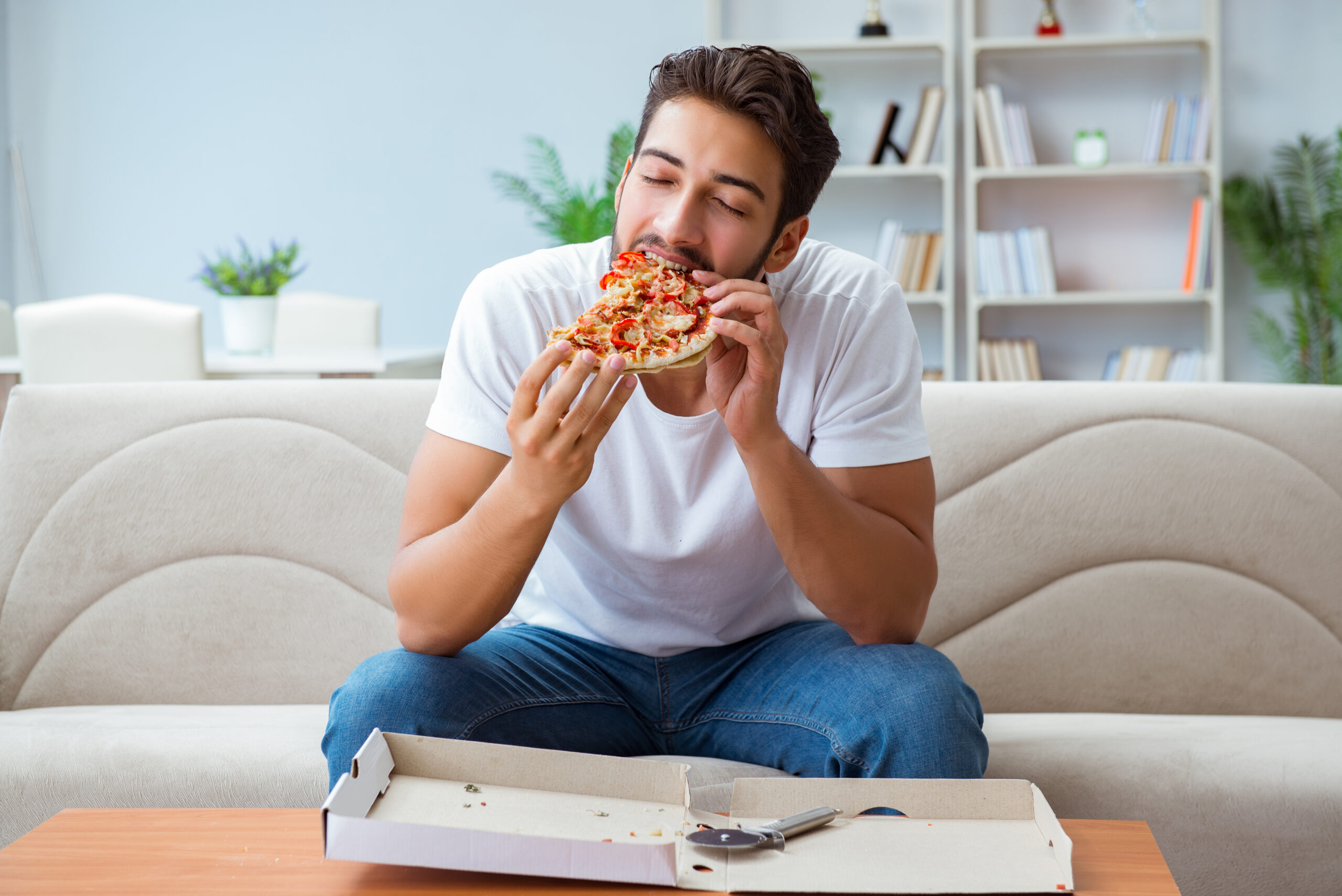How Bad Feelings Can Lead To Binge Eating

People who act impulsively in response to negative emotions are at greater risk of binge eating, according to new research.
“It’s human nature to want to turn to something for comfort after a bad day, but what our research found is that the tendency to act rashly when faced with negative emotions is a personality trait that can lead to binge eating,” says senior author Kelly Klump, professor of psychology at Michigan State University.
Klump and her team interviewed 612 female twins, of whom 14 percent had binge eating, overeating (consumption of a large amount of food without a loss of control), or loss of control over eating (difficulty controlling one’s consumption of even a small amount of food).
Binge eating is the uncontrollable consumption of a large amount of food in a short period of time.
They determined that people with these eating problems generally had higher levels of “negative urgency,” or a tendency to act impulsively when experiencing negative emotions, than those who did not have pathological eating.
What’s more, it’s not just those with binge eating who act impulsively when upset. “Both overeating and feeling out of control when eating small or normal amounts of food were related to rash action when experiencing negative emotions,” says Sarah Racine, assistant professor of psychology at Ohio University and lead author of the study.
Although negative urgency was high in those people who set out to overeat and those who lose control when eating, Racine believes there may be different factors at play for these two types of problem eating.
“It is possible that relationships between binge eating and negative urgency reflect impairments in behavioral control over eating when upset,” says Racine. “Overeating may instead represent increased sensitivity to rewarding effects of food in the context of negative emotions.”
This research has important implications for treatment, Klump says. “If we can treat the underlying tendency to jump to eating when feeling negative emotions like stress, we may be able to help thousands of individuals who suffer from a range of eating disorders.”
Read More:
The paper appears in the International Journal of Eating Disorders. The National Institute of Mental Health supported the work. Additional coauthors contributed from Florida State University, Michigan State University, Virginia Commonwealth University, and the University of Virginia.
Source: Michigan State University
Editors Note:
Author:

KIM WARD
A proud graduate of Michigan State, Kim has more than 25 years of experience in strategic public relations and media relations. She has held public relations and communications management positions at the College for Creative Studies, Thomson Gale, The Stroh Brewery Company, and the former NBD Bank. Kim is accredited in public relations by the Public Relations Society of America and earned a master of science in administration, emphasis in communications management, from Central Michigan University. As part of the media communications team, Kim develops and implements public relations programs to promote MSU’s outstanding research.





